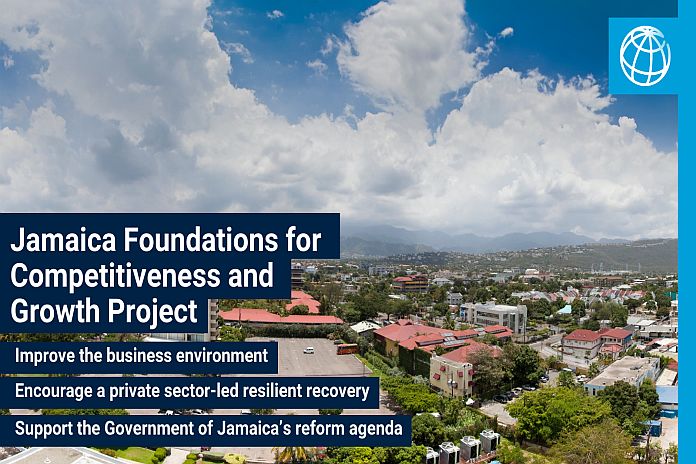WASHINGTON, USA — The World Bank’s board of executive directors approved additional financing of US$10 million for the ongoing Jamaica Foundations for Competitiveness and Growth Project. The additional financing will be used to scale up support for the government of Jamaica’s business climate reform agenda and contribute to Jamaica’s economic recovery by improving the business environment.
“This additional financing will support initiatives that encourage business growth in Jamaica and strengthen the environment for private sector investment. These changes are more critical now than ever, as the private sector has been hit hard by the economic and social impacts of COVID-19. The additional financing will help Jamaica build back better through support for reforms to make it easier to do business, which will benefit local entrepreneurs.” said Ozan Sevimli, World Bank Resident Representative for Jamaica and Guyana.
Jamaica is facing significant challenges from the COVID-19 crisis, and the government has adopted a series of measures to address the deteriorating economic and social situation. This additional financing provides technical assistance to improve the investment climate by updating laws, regulations, and legal frameworks, to support a private sector-led resilient recovery. Reforms focus on trading across borders, enforcing contracts, registering property, getting electricity, and getting credit. The project also includes policies and programs for export competitiveness, attracting foreign direct investment, and supplier linkages.
The US$50 million Jamaica Foundations for Competitiveness and Growth Project was approved in 2014 and has shown encouraging results, supporting 14 new investment climate laws, regulations, and policies that improved Jamaica’s business environment. In addition, nearly 140 small and medium-sized businesses have benefitted from a line of credit program and over 380 businesses received training support through matching grants. The loan comes from the International Bank for Reconstruction and Development (IBRD) and has a maturity of 25 years, including a grace period of five years.





